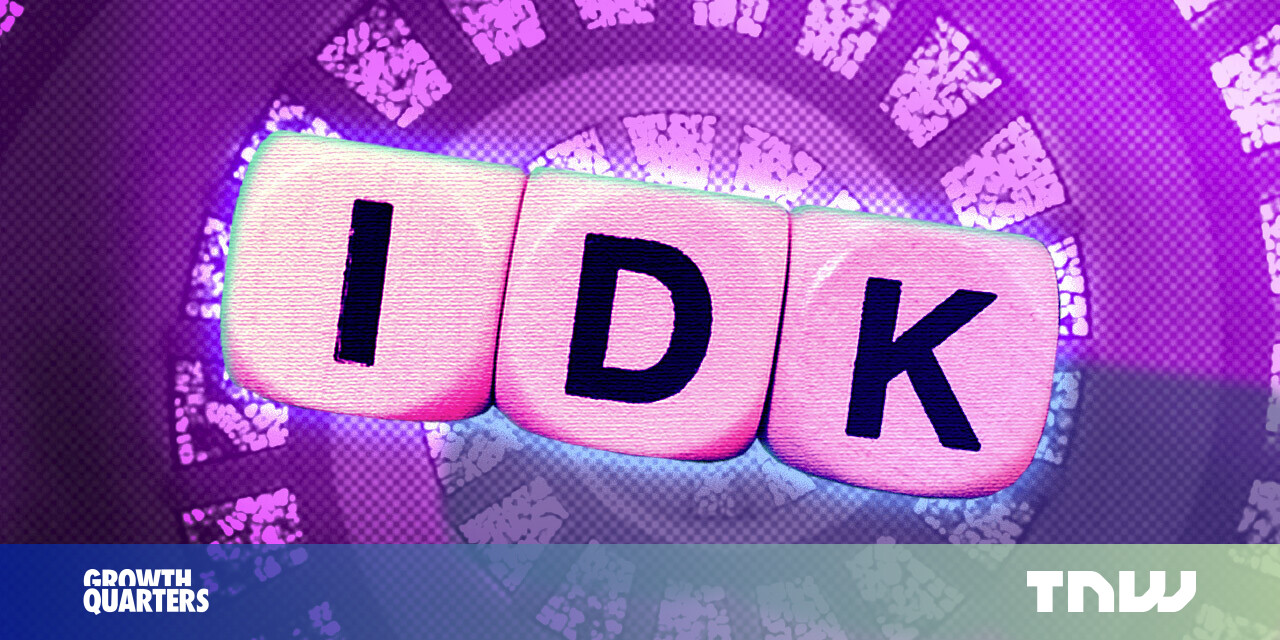
I used to do sales, and I found three words very helpful: “I don’t know.”
The internet is full of articles for salespeople offering alternatives to saying those three words, all with elaborate ways to avoid admitting ignorance. And I get it: telling someone you don’t know something is hard, especially when you’re trying to convince that person to give you money.
But that’s why saying “I don’t know” is so powerful. In a world full of BS, the best way to stand out is to resemble an actual human being. Admitting you don’t know something is the most human thing you can do.
You don’t know everything — which makes sense
I used to build WordPress websites for local businesses in Boulder, Colorado, and I never impressed potential clients more than the times I admitted I didn’t know the answer to a question. It caught people off guard, in the best way, because they were so used to people pretending or weaseling their way out of corners.
“I don’t know,” I’d tell people. “Let’s see if we can figure it out together.”
And then we would. If I wasn’t sure what a setting did, I’d experiment as the customer watched. If it was something that would require more research, I’d commit to figuring it out. But first, and always, I’d admit that I didn’t know.
I built multiple relationships using the words “I don’t know” because people knew I wasn’t trying to hide anything. There’s trust in that. And you know what? The clients this impressed were by far the best people to work with. They were, on the whole, more curious, kind, and generally just the sort of people you want to work with on a project.
Our culture values confidence — it should value competence
I should clarify: I’m not saying you should be proud of your ignorance. Far from it. I’m saying that, when you don’t know something, you should admit it. You can’t learn something if you think you already know it.
This is a hard thing to realize. If recent history has taught me anything, it’s that American culture values confidence more than competence. Being loudly incorrect gets you on TV more often than being quietly curious, and it sadly seems like a quick path to success in business. There’s every incentive to pretend you know everything, and doing so can easily become reflexive.
Unfortunately, respecting the “I don’t know” isn’t universal. I asked my Zapier coworkers, and many of them told me that, in previous roles, they’d been punished professionally for admitting they didn’t know something. That’s a shame. Those companies missed out on the best possible version of my coworkers — the version that admits they don’t know something and tries to learn.
Just admit you don’t know
None of this is to say that admitting you don’t know something is easy. It isn’t. My Zapier colleague Breetel Graves recently wrote a Friday update on our internal blog that I can’t stop thinking about. She outlined her internal monologue in the lead-up to asking a question:
Breetel: I’m so dumb, I can’t ask this question. I can’t reveal how dumb I am!
Other Breetel: Ok, let’s say you are that dumb. What will happen if you reveal how dumb you are?
Breetel: I’ll get fired.
Other Breetel: You probably won’t be fired immediately. It’ll take a bit. You’ll probably have some warning.
Breetel: But then I’ll get fired.
Other Breetel: Yeah, but you’d probably get another job. The local cheese shop is hiring. You love cheese.
And then I asked the question.
This is so human it hurts. I do the same thing: I wonder if admitting I don’t know something will result in some sort of catastrophe.
But you know what? It hasn’t, at least for me — and it shouldn’t for anyone.
This article by Justin Pot was originally published on the Zapier blog and is republished here with permission. You can read the original article here.